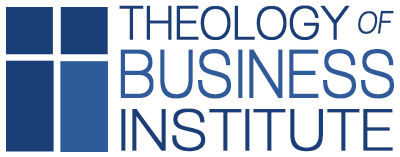3 Characteristics of Ethical Marketers

 A study recently revealed that 25% of Facebook ads promote counterfeit products. With headlines like this, it’s no wonder why most of us have a hard time believing the claims of marketers.
A study recently revealed that 25% of Facebook ads promote counterfeit products. With headlines like this, it’s no wonder why most of us have a hard time believing the claims of marketers.
Whether as a politician trying to win more votes, a pastor trying to get more members, a businessperson trying to sell more products or services, or a non-profit leader trying to recruit more donors… all marketers face the temptation to over-promise and under-deliver. Here are a few examples of where I’ve experienced this:
- “I can create xyz product for you.” (…when the person doesn’t actually have the skills or resources to produce the end product.)
- “My product will give you xyz result.” (…when they actually mean, “My product can help you to get xyz result.”)
- “Our nonprofit has served 75,000 people.” (…when that over-estimation was not based on honest, well-calculated statistics.)
- People are buying fake social media followers on Twitter, Facebook, etc… paradoxically, to “enhance their credibility.”
Yet, in the long run, results-oriented marketers always make a greater impact than claims-oriented marketers.
Here are three characteristics of honest, results-oriented marketers.
1: They don’t make unsupported claims.
At the beginning of his ministry in 1948, Rev. Billy Graham gathered his small team in Modesto, California to establish the guidelines that would help to enable the impact and legacy of the Billy Graham Evangelistic Association. One of the four commitments they made was this: “To abstain from making any extravagant claims about the success of the organization.”
At least 2.2 billion people have gathered to listen to Rev. Billy Graham speak throughout his lifetime. The extravagant results spoke for themselves without the need for unsupported, extravagant claims about his ministry’s impact.
Especially in the Information Age, people are overwhelmed with opinions and theories. Results to support claims are scarce. People may listen to opinions, but they usually won’t change their behavior because of opinions.
2: They point people toward the proof.
While sitting downcast in prison for challenging wickedness in the government, John the Baptist sent a message to Jesus, asking him, “Are You the Expected One, or shall we look for someone else?” (Matthew 11:3) In that moment, John lapsed from being Jesus’ chief promoter to questioning whether it was all just a hoax. He was the last person that one might expect to doubt Jesus’ message.
Rather than abandoning John for his moment of doubt and frustration, Jesus had compassion on him and addressed his concern. Pointing John’s attention toward the results of Jesus’ ministry, Jesus told his messengers,
Go and report to John what you hear and see: the blind receive sight and the lame walk, the lepers are cleansed and the deaf hear, the dead are raised up, and the poor have the gospel preached to them. (Matthew 11:4-5)
Jesus overcame John’s objections with empirical proof. He gave John results—not claims only. He was doing all of the things that he said he was going to do in his mission statement (stated in Luke 4:18-19).
3: They gather testimonies about the results they’ve helped people to achieve.
Testimonies are the most effective marketing tools. Results-oriented marketers aim to get testimonial endorsements from the people that benefit from what they are offering. They archive this feedback carefully and share the positive reviews and testimonies with others.
Don’t advertise your aspirations. Advertise the truth. The truth is found in the results—not opinions or theories. Your success will come not from what you promise but from what you deliver.



